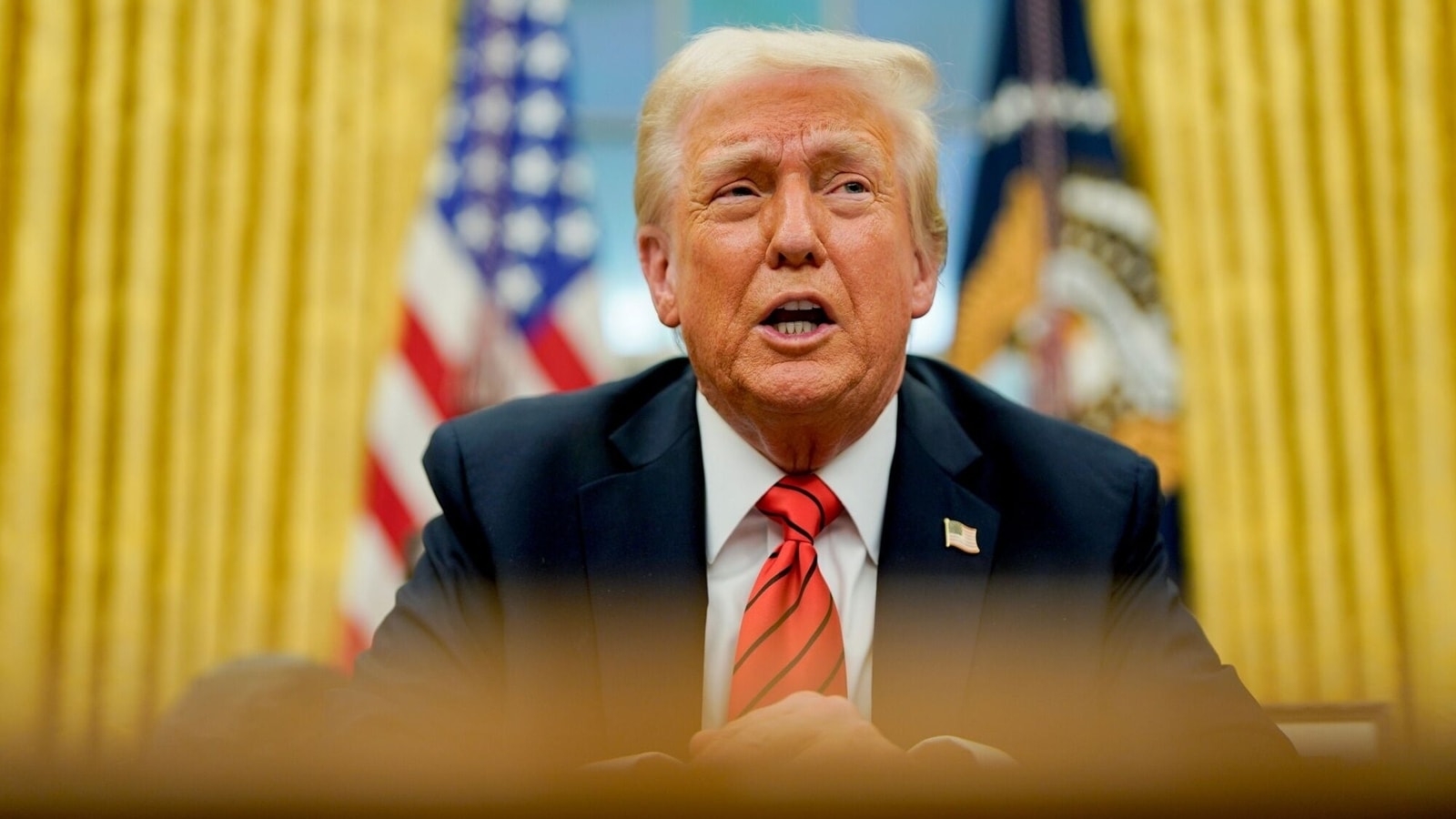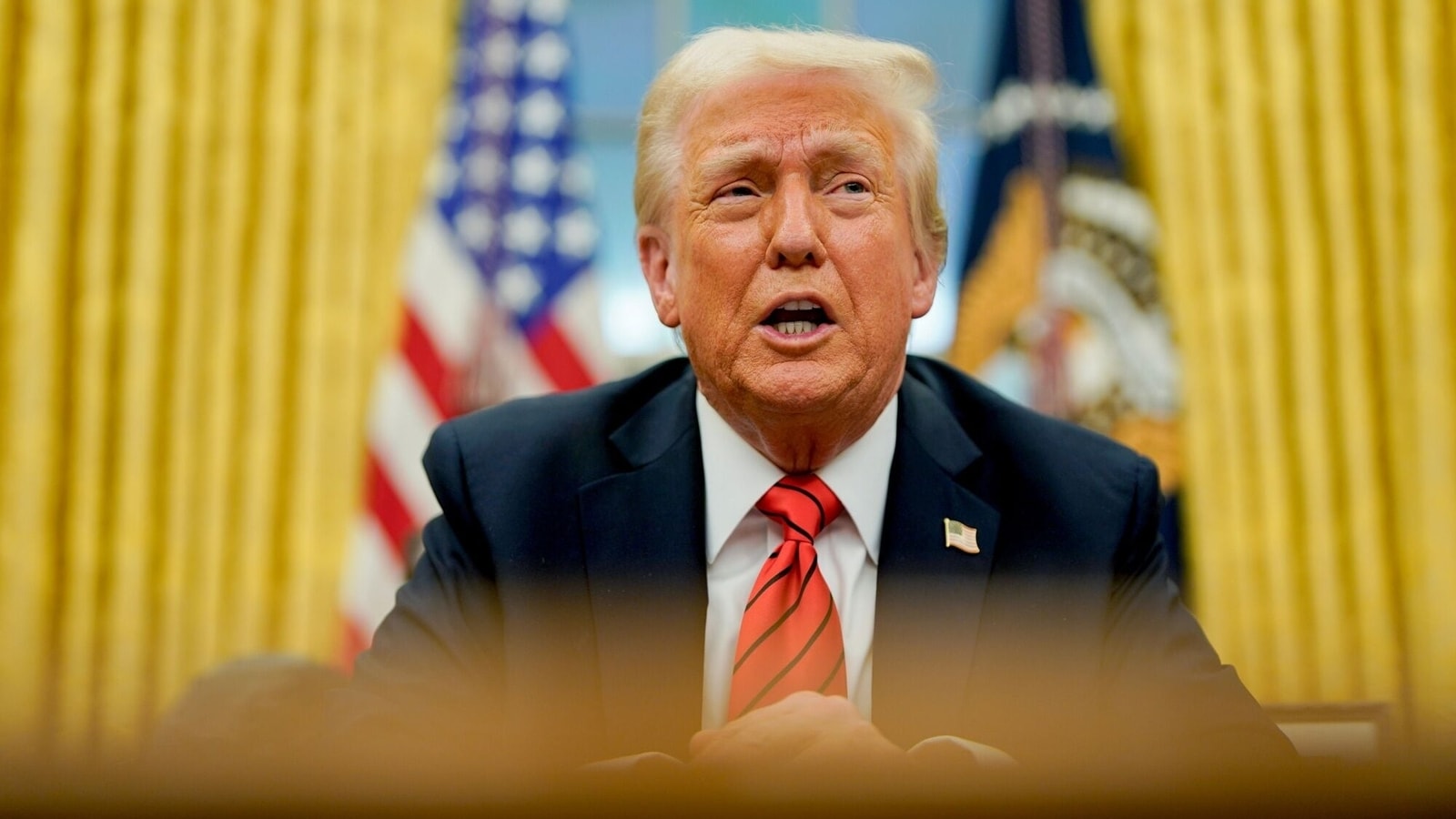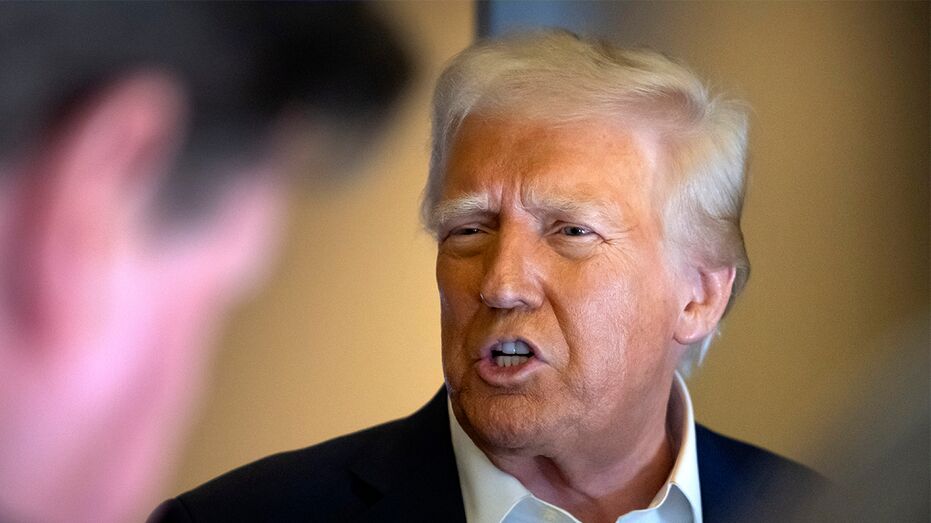
Trump Reaffirms US Plan to Take Control of Gaza, Suggests Middle East Nations Aid in Reconstruction
U.S. President Donald Trump has reaffirmed his commitment to acquiring and controlling Gaza, as the conflict-ridden region grapples with destruction. During a recent flight aboard Air Force One, Trump elaborated on his strategy for the Israeli-Palestinian crisis while en route to a Super Bowl event in New Orleans. His remarks came in the context of rising international tensions and humanitarian concerns.
Commitment to Gaza Ownership
“I’m committed to buying and owning Gaza,” Trump declared emphatically, indicating his administration’s drive towards a new geopolitical stance in the Middle East. The President proposed that while the U.S. takes ownership of Gaza, it could delegate significant roles in reconstruction to other Middle Eastern nations, thereby enlisting them in a cooperative rebuilding effort. “As far as reconstruction goes, we may delegate sections to other Middle Eastern nations, allowing them to handle the rebuilding process under our oversight,” he added.
Trump described the current state of Gaza as “nearly uninhabitable,” calling it a “demolition site.” He emphasized the necessity of cleaning and rebuilding the devastated landscape, asserting, “There’s nothing to return to. Everything is destroyed.” This bleak characterization has raised alarms about the humanitarian crisis unfolding in the region, with potential implications for millions of displaced Palestinians.
The Plan for Palestinian Resettlement
During a recent joint press conference with Israeli Prime Minister Benjamin Netanyahu, Trump articulated a vision for the future of Gaza intertwined with the resettlement of Palestinian residents in other nations. “The United States will assume authority over Gaza and manage it appropriately,” he stated, outlining responsibilities that would include clearing unexploded ordnance and dismantling any remaining weaponry.
Trump’s reconstruction vision extends beyond mere cleanup; he has promised economic development that aims to create jobs and housing in the war-torn region. “We will level the site, remove the ruins, and initiate economic development,” he affirmed, emphasizing the need for a transformative approach to prevent recurring cycles of destruction and rebuilding that he claims have plagued the region for decades.
Furthermore, he expressed a willingness to consider accepting some Palestinian refugees into the U.S., though he clarified that such admissions would be evaluated individually, reflecting a nuanced approach to an increasingly contentious issue.
International Backlash and Regional Responses
Trump’s persistent stance has not gone unnoticed in the international arena. Numerous nations have expressed their strong disapproval of his proposals regarding Gaza, amidst a backdrop of escalating violence that has stemmed from Hamas’ attack on Israel on October 7, 2023. The U.S. President’s comments have drawn criticism, particularly concerning the potential for forced displacement of Palestinian people, reminiscent of the “Nakba”—the 1948 displacement that resulted from the establishment of Israel.
On January 25, Trump called upon neighboring Arab states—including Jordan and Egypt—to accept an influx of Palestinian refugees, hinting at a significant demographic shift: “You’re talking about probably a million and a half people, and we just clear out the entire area and say, ‘It’s over,’” he remarked.
Such statements have provoked fears among Palestinians and human rights advocates that this could lead to further ethnic cleansing and social crisis within the region.
Expected Diplomatic Outreach
In light of Trump’s proposals, Israeli President Isaac Herzog has noted the necessity of engaging key Arab leaders in upcoming discussions. He stated that Trump is set to meet with prominent figures such as Jordan’s King Abdullah II, Egypt’s President Abdel Fattah el-Sisi, and potentially Saudi Crown Prince Mohammed bin Salman. “These nations must be heard, and their perspectives considered,” Herzog emphasized, suggesting that respect for regional interests is crucial for fostering a sustainable peace agreement.
The upcoming meetings are anticipated to address significant concerns from these leaders regarding the implications of a U.S.-controlled Gaza and the proposed resettlement of Palestinian refugees.
Arab Nations Respond to U.S. Control Proposal
Contrary to Trump’s vision, several Arab nations have outright rejected the idea of U.S. control over Gaza. Reports indicate that King Abdullah II of Jordan plans to caution Trump against pursuing such a course, warning that it could exacerbate extremism and destabilize the region further. The Jordanian monarch underscored that this approach poses a direct threat to Jordan’s peace treaty with Israel.
Beyond Jordan, nations such as Saudi Arabia are expressing firm opposition, highlighting the concerns shared by several Arab governments regarding the humanitarian implications of displacing Palestinians while simultaneously granting control of Gaza to the United States.
The Road Ahead
As the diplomatic landscape continues to evolve, the future of Gaza remains at a critical juncture. While President Trump maintains a strong commitment to U.S. control over the region, rising international resistance suggests that consensus will be difficult to achieve. The discussions with Middle Eastern leaders could either lead to collaborative rebuilding initiatives or deepen existing tensions based on differing visions of peace and ownership.
Ultimately, the fate of Gaza and its inhabitants hinges on the outcome of these diplomatic engagements, highlighting the urgency of addressing not only geopolitical disputes but also the humanitarian crises that arise from long-standing conflicts.
*Reuters contributed to this report.*


















